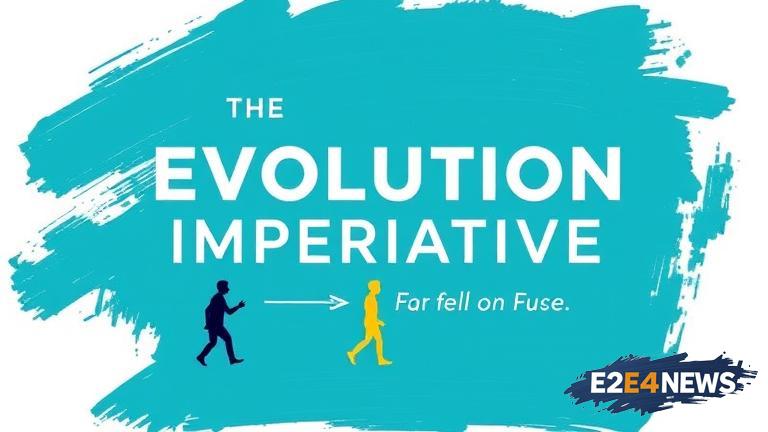The nonprofit sector is at a crossroads, with many organizations facing significant challenges in terms of funding, talent acquisition and retention, and relevance in a rapidly changing world. To remain viable, nonprofits must be willing to evolve and innovate, embracing new technologies, strategies, and partnerships. This requires a fundamental shift in mindset, from a traditional, static approach to a more dynamic, adaptive one. Nonprofits must be prepared to take calculated risks, experiment with new ideas, and learn from their failures. The stakes are high, with the potential loss of valuable assets, including donors, volunteers, and staff, if organizations fail to adapt. Donors, in particular, are becoming increasingly sophisticated, with many seeking to support organizations that can demonstrate tangible impact and outcomes. Nonprofits must be able to articulate their value proposition, highlighting the unique contributions they make to society. Volunteers, too, are essential to the nonprofit sector, providing critical skills, expertise, and labor. However, many nonprofits struggle to retain volunteers, often due to inadequate training, support, and recognition. To address this, nonprofits must prioritize volunteer engagement, providing opportunities for growth, development, and feedback. Staff, meanwhile, are the lifeblood of any nonprofit, bringing passion, expertise, and commitment to the organization’s mission. Yet, many nonprofits face significant challenges in terms of staff recruitment, retention, and development, often due to limited resources, inadequate compensation, and lack of opportunities for advancement. To overcome these challenges, nonprofits must invest in their staff, providing training, mentorship, and opportunities for growth and development. Technology, too, plays a critical role in the evolution of nonprofits, enabling organizations to reach new audiences, build community, and drive social change. Social media, in particular, has become an essential tool for nonprofits, allowing them to share their stories, build brand awareness, and mobilize support. However, many nonprofits struggle to leverage social media effectively, often due to limited resources, inadequate expertise, and lack of strategy. To address this, nonprofits must prioritize social media, developing a comprehensive strategy that integrates with their overall mission and goals. Partnerships, too, are essential to the nonprofit sector, enabling organizations to leverage resources, expertise, and networks to drive social change. Nonprofits must be willing to collaborate with other organizations, businesses, and stakeholders, sharing knowledge, expertise, and resources to achieve common goals. Ultimately, the evolution of nonprofits requires a fundamental transformation in mindset, culture, and practice. Organizations must be willing to challenge assumptions, experiment with new ideas, and learn from their failures. By embracing innovation, risk-taking, and collaboration, nonprofits can remain relevant, effective, and sustainable, driving social change and improving lives. The future of the nonprofit sector depends on it. Nonprofits must prioritize diversity, equity, and inclusion, recognizing the importance of representation, accessibility, and cultural competence. They must also prioritize transparency, accountability, and governance, ensuring that they are managed effectively, efficiently, and ethically. Furthermore, nonprofits must be prepared to address the complex, interconnected challenges of our time, including climate change, social injustice, and economic inequality. By working together, nonprofits can drive meaningful change, improving lives, and creating a more just, equitable, and sustainable world.
